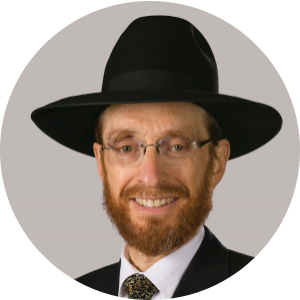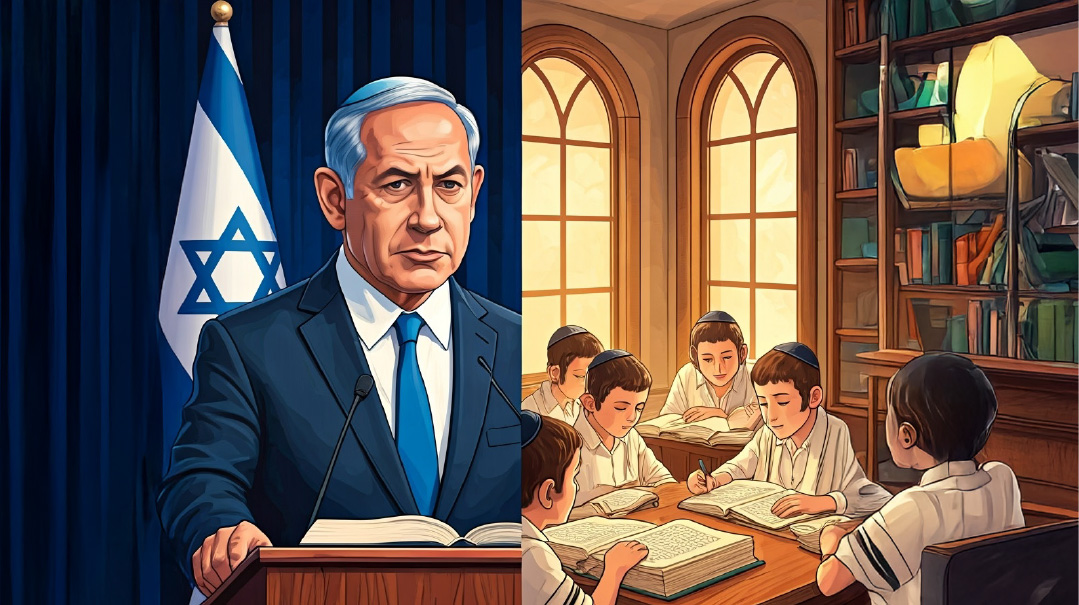Wimps No More

Self-defense is not only permitted by the Torah, it is actually encouraged

O
ne day last year, when “Yanky” was in the fifth grade, he came off the school bus in tears.
“What happened?” his father, “Eli,” gasped, with a note of urgency in his voice.
“I hit a boy in my class,” Yanky wailed. “And that means that now I’m a rasha.”
“Hold on a minute, here,” Eli said, trying to soothe his distressed son and unpack the day’s events at the same time. “Why did you hit someone in the first place? And why does that mean you’re a rasha?”
“There’s a boy in my class who’s always poking and pinching me,” Yanky coughed out between sobs. “I don’t know why. But he’s always starting up with me!”
“So why didn’t you tell your rebbi about this?”
“I did! But it didn’t help.”
“Well, what did the rebbi say when you told him?”
“He said he’d speak with the boy. But it didn’t stop.”
“Then why didn’t you just go back to the rebbi again and tell him that the problem wasn’t solved?”
“I did that, too! But it still didn’t help,” Yanky insisted, trying to catch his breath. “So, um, so when he laughed and stuck out his foot today, tripping me in the hall, I punched him in the chest and knocked him down on the floor. And my rebbi taught us that any Yid who raises his hand to hit another Yid is a rasha!”
Eli wrapped his arms around his son and explained to him that the rebbi was correct. However, he was referring to a case where someone initiates violence, not where someone is trying to defend himself.
Eli and his wife had been consulting me about one of their other children. During one of our meetings, they reported the episode with Yanky described above and then asked for my take on how Eli had handled it. Here is some of what I told them.
When Dasan and Aviram were quarreling with each other, the Torah relates that Moshe Rabbeinu tried to intervene by addressing the instigator of violence, whom the Torah labels a rasha (Shemos 2:13). And yes, Rashi on that pasuk does cite the Chazal that if one even raises his hand against a fellow Jew, without hitting, he is termed a rasha (Sanhedrin 58b).
Furthermore, the Torah makes it clear that physical aggression is considered a non-Jewish trait. For example, the malach foretells Hagar that her son, Yishmael, will be someone whose “hand will be on everyone” (Bereishis 16:12). And Yitzchak Avinu declared, “v’hayadayim yedei Eisav” (Bereishis 27:22). Only non-Jews typically resort to physical violence.
Nevertheless, the Torah does not expect us to be wimps who “turn the other cheek” when we are attacked or even threatened with an attack. The Mishnah, for example, states that someone who tunnels into someone else’s home to burglarize it may be killed by the owner in self-defense (Sanhedrin 8:6). The Gemara elucidates this mishnah as follows. “The Torah says haba l’hargecha, hashkeim v’hargo, if someone is coming to kill you, preempt him and lethally attack him first” (Sanhedrin 72a).
When parents are confronted with the dilemma of how to help their children deal with assaults from their peers, they need to distinguish between verbal and physical attacks. In the case of insults, name-calling, and teasing, the old “sticks and stones” refrain will not be very effective. What is helpful is when parents empower their children by giving them the tools they need to cope with these verbal onslaughts. And these are the same tools that parents automatically use themselves, often without even realizing it.
Discredit the source. The insulter is the one who should be embarrassed, not his victim. Insults demean the insulter more than his target. Children need to be reminded that bullies reveal their weakness and insecurity when they attempt to exert power over others.
Dilute the sting with the balm of support. We are surrounded by so many friends and relatives who care for and think highly of us that the insult should be batel b’shishim. Children need to learn to nullify the minor negativity of an affront with the soothing embrace of a loved one.
Catalogue your strengths, talents, and positive qualities. When we are verbally put down by others, we comfort ourselves by focusing on our past accomplishments and successes. Children can and should be taught to do the same.
When children are physically attacked, however, concrete and practical protective measures are needed. Certainly, if these attacks take place in school, children can be instructed to inform their rebbi or morah. And if the attacks persist, this can still be brought back to the attention of the faculty by the child and/or the parent. However, that does not mean that children should be taught never to defend themselves. When push comes to shove, literally, children should be taught to stick up for themselves. And Eli acted correctly by explaining this to his son.
In fact, Rav Shlomo Zalman Auerbach ztz”l was asked if a child is being hit by a classmate, should he be instructed to inform his rebbi, or should he hit back to defend himself? And he responded that the child could hit back, but only to prevent further attacks, not to take nekamah (Shal’mei Moed, Rav Shlomo Zalman Auerbach, Pirkei Chinuch, p. 521).
As a teenager, I don’t think I could have been described as a wimp. I did feel somewhat intimidated, however, around some of my more aggressive peers. And I wondered how I would fare if I ever faced a physical confrontation.
One day, I shared my concerns with my father z”l. In a gentle, tender manner, he asked if I might be interested in taking a few self-defense lessons. I rejected the idea outright when it was first suggested. Upon further reflection, however, I came back to him later and accepted his offer.
All told, I took about half a dozen lessons, which gave me some basics of self-defense. And baruch Hashem, I never had the need to put what I had learned into practice. The lessons, however, did increase my self-confidence and reduced my sense of vulnerability around the tougher boys in my yeshivah and in camp.
My father, it should be noted, was no stranger to physical confrontations. He was born and raised in the rough-and-tumble Lower East Side of Manhattan at the turn of the century. The neighborhood was multiethnic and included more than an ample supply of anti-Semites.
One day, my uncle Yehudah, my father’s younger brother, came home from cheder all bloodied up by an encounter he had with a Jew-hating non-Jewish bully named Dutch Shultz (not the infamous Dutch Schultz) who was much older than both Wikler boys. In the frontier justice of that era, my father felt obligated to protect his kid brother from further assaults by confronting his attacker.
The next day, my father encountered Dutch Shultz on the sidewalk and stood up to him, telling him to lay his hands off Yehudah. Instead of responding verbally, Dutch Shultz simply glared down at my father. And then the chase was on.
My father took off into a nearby store, ran through the store, and jumped out a back window, with Dutch Shultz in hot pursuit. Then my father bolted across the backyard and vaulted a wooden fence. And he made it home before Dutch Shultz was able to catch up with him.
The next day, my father prepared himself and his brother with shortened bamboo sticks from someone’s discarded sechach, which they hid in their shirts in case they should be confronted by their nemesis. And for the next few days, they walked to and from cheder together, looking out in opposite directions so that they would not be caught off-guard.
These protective measures did not need to be continued for very long because Dutch Shultz was put away a couple of weeks later. He had taunted a policeman and then escaped into an apartment building. Unlike today, in those days, police exacted retribution for disrespect, especially from children. As the policeman walked toward the apartment building, Dutch Shultz raced to the roof, grabbed an empty steel milk barrel and threw it down on the policeman, hitting him as he was about to enter.
No, children should not be taught to settle disputes by hitting. However, they should also be taught that they need not become other children’s punching bags, and that self-defense is not only permitted by the Torah, it is actually encouraged.
Oh, and just for the record, I later learned that after Yanky fought back, his classmate never again repeated his vicious attacks.
Dr. Meir Wikler, a frequent contributor to this space, is an author, psychotherapist, and family counselor in full-time private practice with offices in Brooklyn, New York, and Lakewood, New Jersey. He is also a public speaker whose lectures and shiurim are carried on TorahAnytime.com. The author would like to thank his friend and colleague, Dr. Benzion Sorotzkin, for his assistance in the preparation of this article.
(Originally featured in Mishpacha, Issue 989)
Oops! We could not locate your form.






